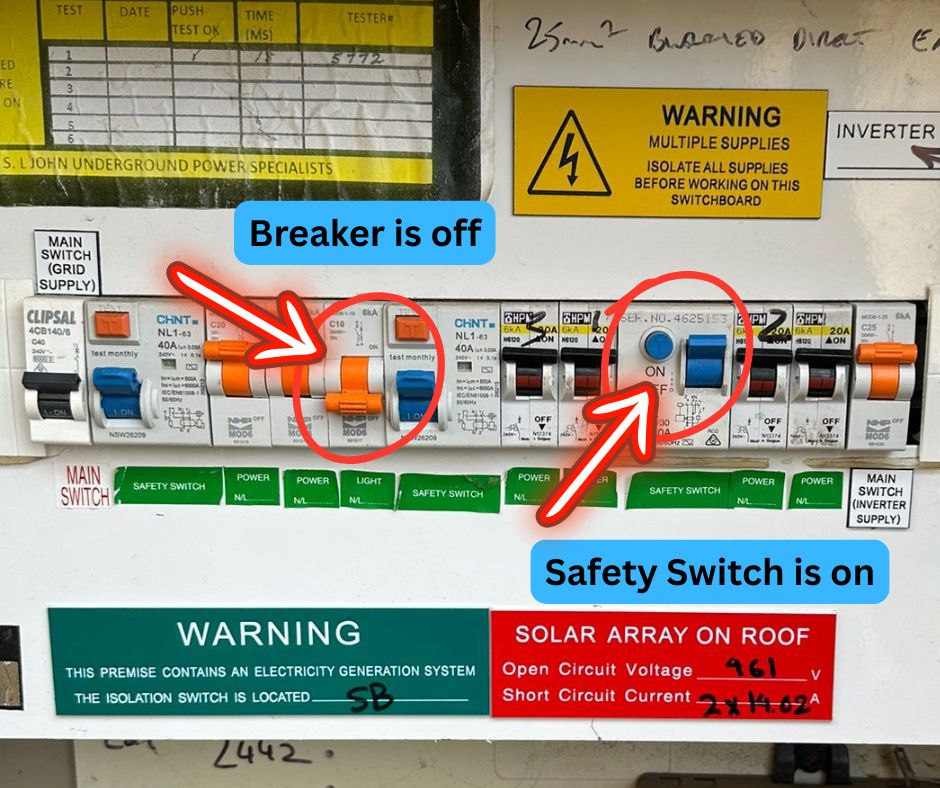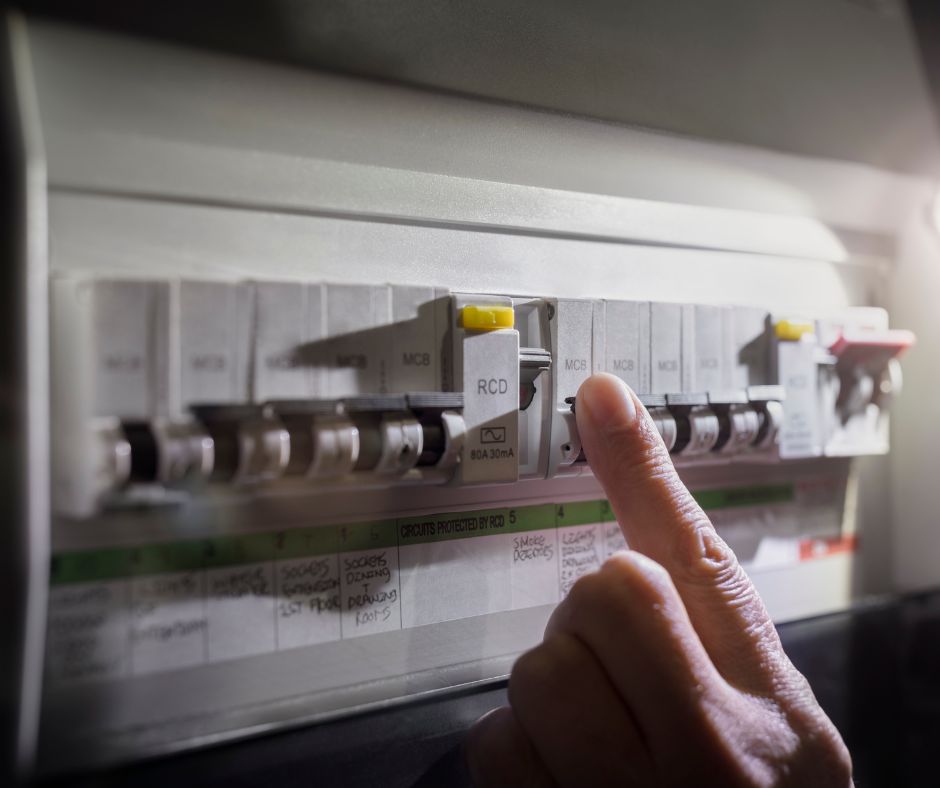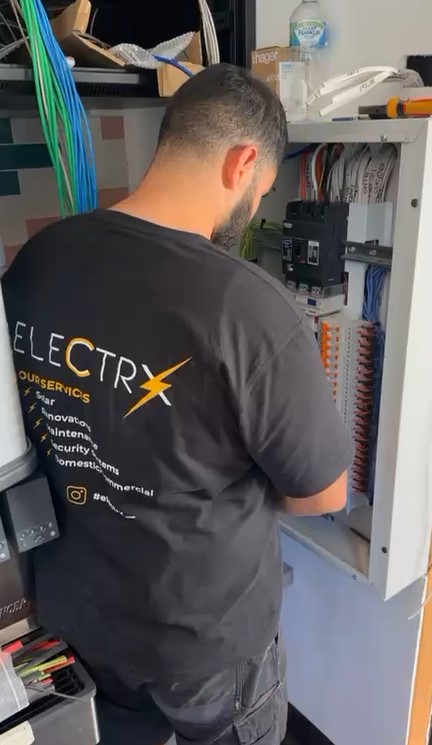Uncover the Key Reasons Behind Frequent Circuit Breaker Tripping in Your Home
When a circuit breaker frequently trips, it is vital for safeguarding your household from potentially dangerous electrical faults. This persistent issue can stem from various common culprits, including overloaded circuits, short circuits, malfunctioning appliances, or concealed wiring issues. If you observe that the breaker consistently trips, it is essential to pinpoint the root cause and consult a qualified electrician to perform necessary repairs. Doing so will ensure that your home's safety and functionality are effectively restored, preventing any potential hazards from escalating.

Master the Art of Diagnosing the Underlying Causes of Circuit Breaker Tripping
If your circuit breaker shuts off immediately after being reset, it indicates a significant issue within your electrical system. The breaker is effectively doing its job by cutting off power to avert potential hazards or more severe problems. Addressing these concerns promptly can help sustain the safety of your electrical system, thereby preventing further complications from arising.
Homeowners in Werribee, Altona, and Point Cook frequently reach out to us with this concerning issue. While it can be quite disruptive, this phenomenon often serves as an early warning sign of more serious electrical problems that could pose significant risks if not addressed in a timely manner.
This article aims to delve deeply into the various underlying causes of circuit breaker issues, providing you with practical troubleshooting steps you can undertake, and illustrating how Electrx can effectively resolve these electrical challenges.
Grasping the Functionality of Circuit Breakers in Safeguarding Your Home
Circuit breakers operate as essential automatic safety devices, designed to protect your home by interrupting power under certain conditions, including:
- Instances where excessive current flows through a circuit, creating an overload situation.
- Occurrences of short circuits that may result in hazardous electrical faults.
- Situations involving power leakage to the ground, indicating an earth fault.
- If the breaker itself is malfunctioning or approaching the end of its operational lifespan.
In contrast to traditional fuses, circuit breakers react more swiftly to potential threats, offering a superior safety mechanism that does not rely on melting wires to cease the current flow, thus ensuring a safer environment for your family and home.
Pinpointing Why Your Circuit Breaker Fails to Stay Reset
<pIf you find yourself repeatedly resetting the breaker only for it to trip again almost instantaneously, this signals that there is an active fault present on that particular circuit. Gaining an understanding of the common causes can greatly assist you in diagnosing the issue effectively.
The primary issues that frequently result in this scenario include:
Comprehending Overloaded Circuits: A Common Electrical Dilemma
Overloaded circuits represent a prevalent electrical issue, especially when numerous high-draw devices such as kettles, toasters, or heaters are operated simultaneously on the same circuit. The cumulative load can easily exceed the safe capacity, prompting the circuit breaker to trip as a protective measure against overheating and potential fire hazards that could jeopardise your home and safety.
Investigating If Faulty Appliances Are Contributing to the Circuit Breaker Problems
In some cases, the root cause of the issue may reside within the devices connected to the circuit rather than the wiring itself. Appliances such as heaters, older refrigerators, and dryers are often frequent offenders; internal faults in these devices can lead to short circuits or current leakage, resulting in the breaker tripping unexpectedly.
Understanding the Dangers Linked to Short Circuits and Their Causes
Short circuits occur when damaged wiring, rodent infestations, or crushed insulation allow live wires to make contact with the earth or neutral wires directly. This condition can trigger the circuit breaker to trip rapidly to avert hazardous outcomes that could pose risks to your property and safety, making it a critical issue to address immediately.
The Significance of Understanding Earth Leakage and Its Consequences
Moisture infiltration in outdoor outlets, garden lighting setups, or under-house cabling can create conditions that facilitate current leakage into the ground. This scenario can cause Residual Current Devices (RCDs) to trip as a precautionary measure, ensuring the safety of your electrical system while preventing potentially dangerous situations from developing.

Essential Steps to Take When Your Circuit Breaker Trips
- Unplug all devices connected to the outlets on the affected circuit to eliminate any potential source of overload that could exacerbate the issue.
- Reset the circuit breaker by flipping it back to the ‘on' position to restore power temporarily.
- If the breaker remains active, begin reconnecting your devices one at a time to identify the root cause of the problem effectively.
- When the breaker trips again, you will have pinpointed the faulty device that requires further inspection or replacement by a professional.
- If the breaker continues to trip even when no devices are connected, it is essential to reach out to our team for expert assistance.
Take advantage of our Fault Finding Service to receive a thorough and prompt diagnosis of your electrical issues, thereby ensuring your safety and peace of mind during this process.
Determining When It’s Time to Stop Resetting Your Circuit Breaker
If your circuit breaker consistently trips or refuses to reset entirely, you should take the following precautions:
- Do not keep resetting the breaker—this action can place excessive stress on the entire electrical system, leading to further complications that may require costly repairs.
- Avoid swapping breakers between different circuits, as this practice may exacerbate existing issues and create new ones.
- Do not attempt to replace the breaker yourself—this is not only against the law but also poses significant safety risks to you and your home, potentially leading to dangerous situations.
We have witnessed numerous instances where DIY resets have resulted in damaged boards or even house fires. Trust our experienced professionals to safely and effectively trace the underlying issue and provide a reliable solution that meets your needs.
What to Anticipate When Electrx Addresses Your Circuit Breaker Challenges
When our dedicated team at Electrx responds to a reported circuit breaker fault, we conduct a comprehensive assessment that includes:
- Testing the circuit using specialised clamp meters and insulation testers to verify safety and reliability of your electrical system.
- Inspecting all outlets, fittings, and switchboard connections for any signs of irregularities or wear that may indicate potential hazards.
- Examining appliances that may be contributing to the fault for potential internal issues that need addressing.
- Replacing the circuit breaker or RCD if we determine it has failed during our assessment, ensuring your system operates efficiently.
- Repairing any damaged cabling or terminals that pose a safety risk to your electrical system, safeguarding your home and family.
- Issuing a Certificate of Electrical Safety upon the successful completion of our work, ensuring compliance with the relevant safety standards.
If your switchboard is outdated or lacks sufficient safety switches, we may also recommend a Switchboard Upgrade to enhance safety standards and protect your home effectively from electrical faults.
Understanding the Lifespan of Circuit Breakers and Recognising Signs of Failure
Indeed, circuit breakers, like any mechanical device, possess a finite lifespan. If your breaker is tripping excessively or does not reset smoothly, it may indicate a fault that requires immediate attention from a qualified professional.
Signs indicating that your circuit breaker may be on the brink of failure include:
- Feeling hot or loose to the touch, indicating potential overheating that could lead to failure.
- Tripping without any apparent cause, suggesting underlying issues that need to be investigated.
- Requiring significant effort to reset, a clear sign of malfunction that warrants further examination.
- Flipping even when there is no load connected, pointing to possible internal faults that must be addressed immediately.
We maintain a selection of modern, compliant replacements readily available and can promptly replace faulty breakers to ensure the safety and reliability of your electrical system, thereby protecting your home from potential hazards.

Your Circuit Breaker Questions Addressed: Comprehensive FAQ
Can I legally replace my circuit breaker myself?
No, under Victorian law, only a licensed electrician is authorised to safely and legally replace circuit breakers in residential settings, protecting both your safety and your home.
Why does my circuit breaker trip when I operate the heater?
Heaters typically draw a significant amount of current. If they share a circuit with other high-power devices, this can create an overload situation, prompting the breaker to trip as a protective measure against overheating.
Can a faulty outlet cause my circuit breaker to trip?
Yes, damaged or melted outlets can short internally, leading to the breaker tripping each time the circuit is energised, thereby creating hazardous conditions that must be addressed immediately.
Is this a situation that requires immediate attention?
Absolutely, especially if the breaker fails to reset, impacts critical appliances, or shows signs of burning or overheating that could pose serious risks to your household.
Final Insights on Circuit Breaker Issues and Their Effective Solutions
When circuit breakers trip, it is essential to acknowledge that they do so for specific reasons. If your breaker fails to stay reset, it is crucial not to disregard this warning, as the underlying issue could reside within your wiring, appliances, or the switchboard. Electrx is well-equipped to rapidly identify and resolve these concerns, restoring your electrical system to full functionality.
Contact us for expert assistance with Melbourne Switchboards and all your electrical needs, and let us ensure the safety of your home.
Circuit Breaker Keeps Tripping or Won’t Stay Up? Here’s What It Means
The Article: Circuit Breaker Tripping? Discover What It Means first appeared on https://writebuff.com
The Article Circuit Breaker Tripping Explained: What You Need to Know Was Found On https://limitsofstrategy.com

